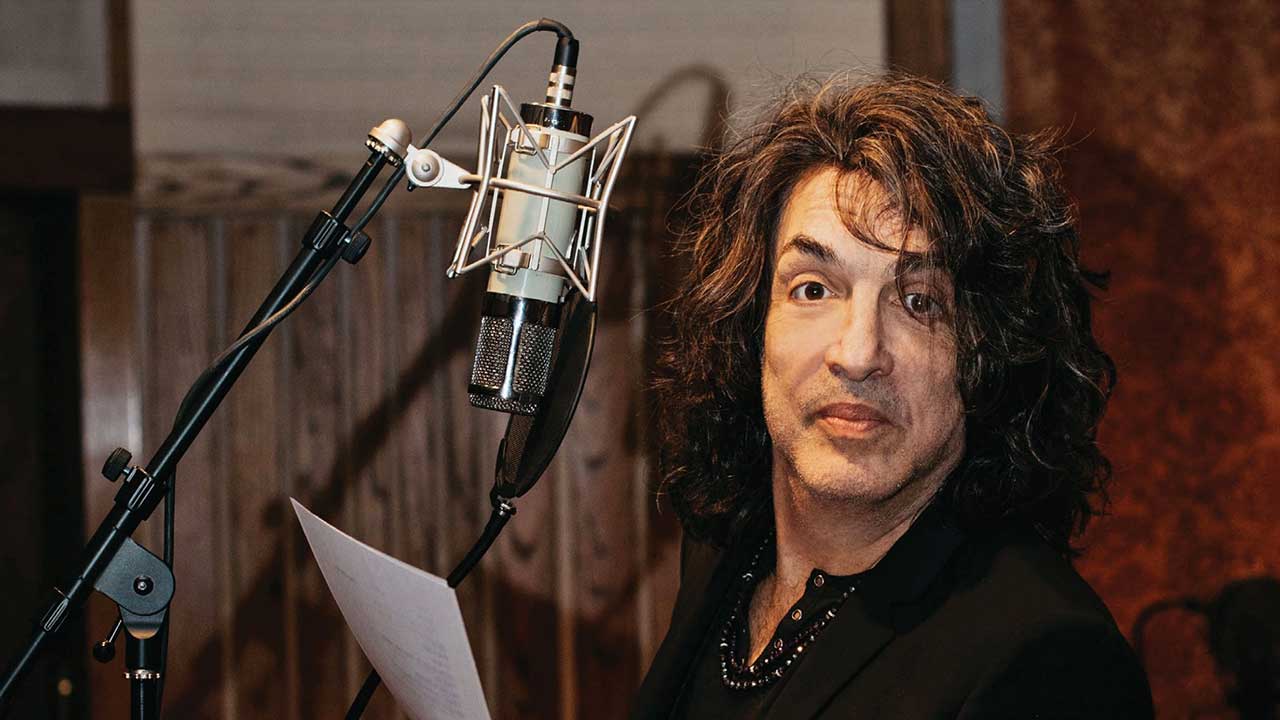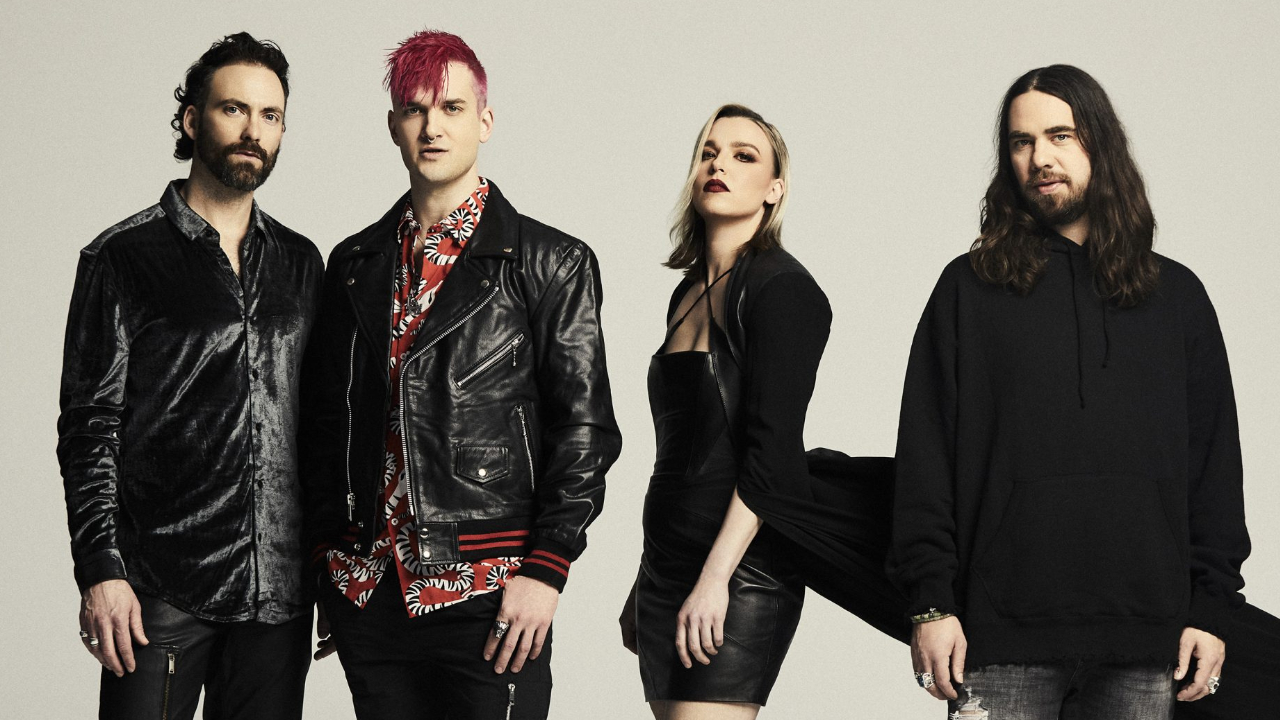Paul Stanley interview: soul, loneliness, and why Download will be mind-boggling
Kiss legend Paul Stanley on his new soul album, deafness, feelings of inadequacy and loneliness, and Kiss playing Download 2022

As co-founder, singer, guitarist, writer and producer for Kiss, Paul Stanley requires no introduction. A lot is known about him. What wasn’t known about him until fairly recently is his lifetime passion for soul and R&B.
In 2016 he used a series of club shows to launch Soul Station, a 15-piece band (including Kiss colleague Eric Singer on drums) that pays tribute to the golden days of Motown. A debut album called Now And Then mixes standards from the era with smooth, creamy originals.

In your autobiography Face The Music: A Life Exposed, you recall teenaged visits to the black neighbourhoods of Queens, New York to buy records by artists such as James Brown and Otis Redding. What made those albums special?
Your question reminds me of days of carrying around a transistor radio, listening to this new music called Motown. That music pulled me in because it was all about emotion. In the last two decades, with the advent of computers, passion has been replaced by perfection. I was lucky; as a teenager I saw Otis Redding and Solomon Burke, which was eye-opening. I never understood people that listen exclusively to one style of music.
When writing new songs to complement golden oldies such as Could It Be I’m Falling In Love, You Are Everything or The Tracks Of My Tears, you must have felt pressure?
Not really, maybe because I’ve been a songwriter for fifty-five years and I’m pretty good at it, and I know that music so, so well. It wasn’t about painting by numbers, more going back to the soul and the sources of those songs. It felt very natural and effortless. I wasn’t seeking to mimic, but to capture the spirit.
It’s ironic that among the biggest musical criticisms levelled against Kiss, is that in a musical sense the band has no soul.
Sign up below to get the latest from Classic Rock, plus exclusive special offers, direct to your inbox!
People that don’t like Kiss will never like Kiss. Years ago I stopped trying to make converts. Songwriting is a recipe of different ingredients, though some are less obvious. I mean, take Shout It Out Loud: [sings] ‘When the night’s begun and you want some fun, do you think you’re gonna find it?’ And then it goes: ‘Think you’re gonna find it?’ The vocal and the background vocal, that’s I Can’t Help Myself (Sugar Pie Honey Bunch) by The Four Tops [1965].
Are you a good dancer?
I consider myself a pretty good dancer. Not in a formal way; I’m not good enough at following steps. But yeah, I can move.
Are there other genres besides soul and rock that you would feel qualified to make a record in? For example could you make a blues album?
As much I have an appreciation of the blues, no. That term gets thrown around so much, it means a lot of different things. Is there some blues in what we do as Kiss? Yeah, but I don’t think it [making a record] is something I would do. The key is not simply to sing or play something, but to immerse one’s self in the music. That’s what Rod [Stewart] does with Sam Cooke; he’s not painting by numbers, he gets it.
Your autobiography contains the revelation that you were born deaf in one ear, which resulted in you having feelings of “inadequacy” throughout your career with Kiss until a life-changing appearance in The Phantom Of The Opera in 1999.
I think that true strength comes from having no secrets. When you shed them you become much stronger.
For somebody who’s seen as a poster boy for self-confidence, your admission of decades of “profound loneliness” was a huge statement.
Yeah, I struggled, and it was tough, although others struggled way more than I did. But there are two choices in life: you can be a victim, or you can roll up your sleeves and get on with things.
How much pleasure did you take from Kiss’s pay-per-view spectacular in Dubai on New Year’s Eve?
If someone’s gonna do it, they may as well be wearing eight-inch heels. It was exhilarating to get back out there, and the conditions of the show [which was watched at the venue by a COVID-screened audience] were so unique. The protocols for safety were so stringent it took on an almost surreal quality. After a year of inactivity it was great to say again: “Yeah, man… we’re Kiss.”
Kiss’s re-booking as one of the headliners at Download 2022 is a year away, but the time will go fast.
I sent Dave Grohl a photo of the finale of our last Download show [in 2015], and he called those scenes ‘insanity’. It looked like World War Three. There’s a lot to uphold, especially as we are at the end. We just can’t continue to do this for much longer. Though once it wasn’t, age is now a factor. Once upon a time it was about will, but now we are running around on stage wearing fifty pounds of gear. However, we will ensure that Download is mind-boggling.
Your Soul Station collective have played around twenty gigs. Is playing live with them something you imagine continuing with once the virus disappears and Kiss call it a day?
Actually, I hope to go out there with Soul Station in the very near future. Because to get the Kiss machine up and running is like a locomotive – it requires momentum. So before then, restrictions allowing, we will return to the stage as Soul Station.
Is Now And Then a one-off or do you envisage more albums from Soul Station?
I never know what’s coming next. That’s the beauty of life. Nobody knows what will happen this afternoon. But I couldn’t be more proud of the album, and I’m humbled to have received praise from Paul Rodgers, Rod [Stewart], [R&B star] Toni Braxton and [The Temptations’] Otis Williams.

Dave Ling was a co-founder of Classic Rock magazine. His words have appeared in a variety of music publications, including RAW, Kerrang!, Metal Hammer, Prog, Rock Candy, Fireworks and Sounds. Dave’s life was shaped in 1974 through the purchase of a copy of Sweet’s album ‘Sweet Fanny Adams’, along with early gig experiences from Status Quo, Rush, Iron Maiden, AC/DC, Yes and Queen. As a lifelong season ticket holder of Crystal Palace FC, he is completely incapable of uttering the word ‘Br***ton’.
